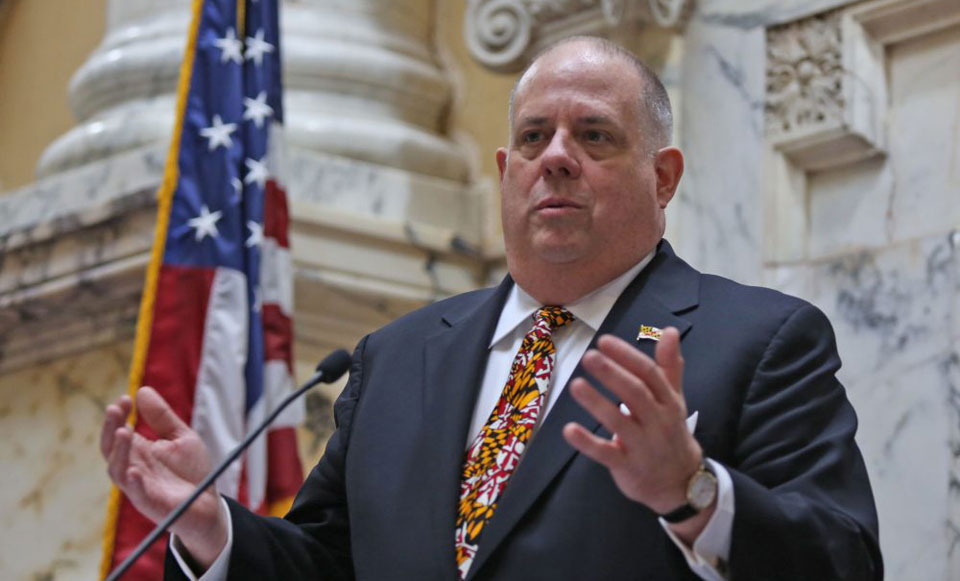
ANNAPOLIS, Md. (PAI)—Maryland Republican Gov. Larry Hogan has yet to decide whether to let thousands of community college workers—faculty and staff–unionize. But chances are good that the bill legalizing unionization will become law.
That’s because even if Hogan vetoes the measure, SB746, supporters appear to have enough votes to override it and let workers vote to unionize or not, college by college. The Democratic-dominated legislature approved it, 91-41 in the House and 31-14 in the Senate. Three-fifths votes would overturn a Hogan veto. He could also let it become law, unsigned.
The measure, with strong union support, would let both faculty and staff at all 16 Maryland community colleges vote to unionize or not. Staff at community colleges in Prince George’s County and at both Baltimore and Baltimore County now can unionize.
Faculty and staff at Montgomery College, the other big community college in the D.C. suburbs (along with P.G.) can unionize. The American Association of University Professors (AAUP) has represented Montgomery College faculty for decades. Its website is silent on SB746.
Service Employees Local 500, which represents Montgomery’s support staffers, including those at the college, is part of the coalition backing the measure. AFSCME Council 67, United Food and Commercial Workers Local 1994, the Maryland State Education Association—the state affiliate of the nation’s biggest union—and the Laborers are also in the coalition, as are other progressive groups, such as Jews United for Justice.
Unionization could give community college workers bargaining rights, which could in turn lead to better pay and benefits for the staffers and a measure of protection, through collective bargaining agreements, against being faculty fired on a whim or not rehired, often because of a student complaint or conflict with an administrator.
That protection is important to non-tenured faculty, who are the overwhelming majority of community college professors nationwide, according to AAUP. One PGCC tenure-track associate professor of English told the association’s journal—a decade ago—that administrators see non-tenured faculty as “disposable” and “recycled out with the garbage if the need arises.”
On its way to Hogan’s desk, foes of unions, including the association representing community college presidents and the county executives of Maryland’s 16 less-populated counties, won some concessions. The county executives of the six largest–Montgomery, Prince George’s, Baltimore County, Anne Arundel, Frederick and Harford–plus Baltimore City, backed it.
The biggest concession pushed the effective dates back, from Oct. 1, 2021, to Sept. 1, 2022 and 2023 and Oct. 1, 2024, depending on the college. And the final version on Hogan’s desk covers full-time and part-time faculty and two units for non-exempt employees on the college staffs. College police and “exempt non-faculty” were tossed.











